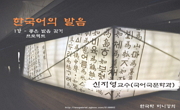The Republic of Korea recruits its force by universal conscription system by constitution, meaning that every Korean man has the duty to serve in the military, by principle. This system is based on the idea of fairness. However, there are still variou...
http://chineseinput.net/에서 pinyin(병음)방식으로 중국어를 변환할 수 있습니다.
변환된 중국어를 복사하여 사용하시면 됩니다.
- 中文 을 입력하시려면 zhongwen을 입력하시고 space를누르시면됩니다.
- 北京 을 입력하시려면 beijing을 입력하시고 space를 누르시면 됩니다.
https://www.riss.kr/link?id=T10038171
- 저자
-
발행사항
서울 : 東國大學校 行政大學院, 2004
-
학위논문사항
학위논문(석사) -- 동국대학교 행정대학원 , 공안행정학과 안보정책전공 , 2004. 8
-
발행연도
2004
-
작성언어
한국어
- 주제어
-
KDC
350.7 판사항(4)
-
발행국(도시)
서울
-
형태사항
v, 99p. : 챠트 ; 26cm
-
일반주기명
참고문헌: p. 90-95
- DOI식별코드
- 소장기관
-
0
상세조회 -
0
다운로드
부가정보
다국어 초록 (Multilingual Abstract)
The Republic of Korea recruits its force by universal conscription system by constitution, meaning that every Korean man has the duty to serve in the military, by principle. This system is based on the idea of fairness. However, there are still various cases showing corruption in efforts to evade military service, which calls on distrust towards the military and distracts our awareness of national security. As a result, there has been a rise of interest and concern about the current military system in large.
Although the current government promoted a variety of policies to approach North Korea which have pretty much raised a sense of friendship, there still have been cases that show North Koreas belligerent attitudes that still keep on the hostile military confrontation in the peninsula. This kind of national security circumstance still demands a reliable defense system.
However, the negative side effects such as the reduction of international competitive power, or the military organizations inefficiency lead to an overall challenge to the original ideas of the present military service system. The military has to keep on its strengthening of the national defense capability, while improving its own efficiency in order to create a more mutual and interrelating relationship with the civilian society. Therefore, I believe an in-depth study and research on this subject seems more than necessary.
In this study, we will compare and analyze the current military service system with foreign systems and investigate them in the respect of relevance and efficiency considering the possible forthcoming national security and economic circumstances that we might face later on, in order to examine the prospects of convergence from enlistment by duty to a more efficient and enhanced system of recruitment, in the sense of paid professional career soldiers. In addition, I would like to introduce some extensive methods to use for problems during or after the system shifting that can be of help, hopefully
The Republic of Koreas military manual defines the principal concept of the development of the military defense system this way; by pursuing to prepare for the uncertain dangers of the future in addition to just preparing from the threats of the North Korean forces, we will build a defense system corresponding our financial capability, that will bring a reinforced military relationship for a bilaterally or multilaterally strategic cooperation. In other words, it is emphasizing the facts that the post cold war and the economic crisis of the North Korean government is changing the security environment, that the importance of financial capabilitys role in defense has enlarged, and that cooperative security should be achieved through military alliance. Once again in other words, we could narrow down the critical point to the shift of the definition of self defense system from a territorial point of view to a more economic point of view.
Therefore, we will investigate the difference of the formerly stated enlistment and recruitment in a financial point of view. The biggest obstacle in bringing the recruitment system to reality is said to be the financial side. However, this is not true. Considering the benefits of modernizing the military to fit the standards of the changing international security circumstances, and considering the opportunity cost of the human resources, the recruitment system is definitely superior. In numerical value derived from economical analysis, the minimum opportunity cost of those serving the military in a year would be at least some 5.5 trillion won, but after regarding the other expenses they have to pay by spending their most critical years in the military, the numbers would be much higher. The military expense is in fact much under estimated in the current system than it actually is. Further more, as a matter of fact, our economic scale has the capability to transfer all the currently enlisted soldiers in duty into well paid, recruited professional military officials. The military research institute reported that such a transfer would cost a 8 trillion won, and after reorganizing it to a more efficient army, the cost will be around 2.5 trillion won, which is not a difficult price to pay compared to the formerly referred cost of 5.5 trillion or more, and which is a price that we can immediately prepare anytime.
While we could save the spirits and ambitions of those young people starting their lives by not cutting off in the middle of their courses, our country would benefit from a creative energy that could contribute to an early stage knowledge-information based, future society, a well developed advanced country. The new recruitment military service system will result in a human resources revolution unprecedented in Korean history, that will influence politics, economics, society and the culture itself with an enormous vitality. Militarily, the introduction of a truly professional career soldiers system will discontinue the inefficiencies of the military today, and will be reborn as a scientific one that will protect us safely from the instantly changing international circumstances.
목차 (Table of Contents)
- 목차 = ⅲ
- 제1장 서론 = 1
- 제1절 연구의 목적 = 1
- 제2절 연구의 범위 및 방법 = 4
- 제2장 병역제도의 일반적인 고찰 = 6
- 목차 = ⅲ
- 제1장 서론 = 1
- 제1절 연구의 목적 = 1
- 제2절 연구의 범위 및 방법 = 4
- 제2장 병역제도의 일반적인 고찰 = 6
- 제1절 병역의 개념 및 특성 = 6
- 제2절 병역제도의 유형 = 9
- 1. 의무병 제도 = 12
- 2. 지원병 제도 = 15
- 3. 혼합형 제도 = 18
- 4. 징병제와 모병제의 장·단점 = 20
- 제3장 각국 병역제도의 현실태 및 한국의 변화 필요성 = 21
- 제1절 병역제도의 세계적 추세 = 21
- 제2절 징병제 국가의 변이 분석 = 27
- 제3절 한국 병역제도의 운용실태 = 34
- 제4절 한국 병역환경의 전망 = 37
- 1. 한반도의 정세 전망 = 37
- 2. 미래전 양상 = 39
- 3. 병역의무 대상자들의 가치관 변화 = 42
- 4. 시민사회의 성숙 = 44
- 제5절 한국 병역제도의 변화 필요성 = 47
- 제4장 한국 병역제도 개선방안 = 50
- 제1절 경제적 타당성 분석을 통한 모병제 도입 = 50
- 1. 징병제의 비용 = 50
- 2. 징병제의 편익 = 61
- 3. 모병제의 비용 = 63
- 4. 모병제의 편익 = 65
- 제2절 기타 개선방안 = 78
- 1. 군역형평조세(Wehrausgleichsabgabe) = 79
- 2. 무작위 차출 = 79
- 3. 차등 복무제 = 80
- 4. 유급 지원병제 = 82
- 5. 병역선택(병역이행, 국방지원세 납부)제도 도입 = 83
- 제5장 결론 = 88
- 참고문헌 = 90
- ABSTRACT = 96












